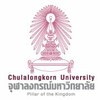Course summaries
To give you a better idea of the classes being taught at JNU, we are providing three examples of class summaries.
Modernization and Development – A South Asian Perspective
This course adopts both holistic and comparative perspectives to grasp South Asian versions of modernization. When the diversities of South Asia are viewed holistically, it becomes possible to appreciate the fluidity of social and ethnic divisions. Issues pertaining to social and national identities have dominated national and international discourse in South Asia to such an extent that the idea of South Asia as a cultural region is vigorously contested in theory and practice. The Holistic approach has to be complemented by comparative studies to gain insights into the processes unleashed by colonial and postcolonial modernization in South Asia. Soon after attaining independence, the nation states of South Asia chose to follow their own versions of modernity as reflected in their plans for economic development and their enthusiasm for building modern institutions. After an initial phase of uncritical acceptance of modernity, it is only now that deeper questions are being raised about modernity as the voice of the people marginalised by modernization has been amplified by modern politics and media exposures. This course seeks to explore the manner in which South Asian cultures are coping with the social turmoil that they confront. Some of their coping strategies may hold clues to the resolution of cultural conflict that are spreading across the whole world.
Themes in Popular Culture
This course outlines the possibilities of exploring varying fields of popular culture and practices of everyday life through a sociological lens. By introducing the key concepts, themes and debates, the course offers a critical analysis of the field of popular culture and everyday life which is theoretically informed and empirically grounded. The field of cultural production, the meanings and pleasures that people create, generate and circulate, the idea of self and social relations, texts, technologies and representations, social formations and distribution of power among various cultural categories and their interfaces will come under scrutiny. The longstanding debates on tradition and modernity with reference to contemporary India will feature in the background as a running theme in order to understand the ideas on the popular within a culturally specific discourse.
Sociology of Knowledge
This course provides a general introduction to the development of the sociology of knowledge, and will explore questions concerning social determination of consciousness as well as theoretical ways to articulate a critique of ideology. The course will encourage critical awareness among social science students about their own discipline and it will explore the future of alternative and embedded knowledges. The objective of the course is furthermore to introduce students to different axes of knowledge, power and hegemony and to steer towards pluralistic basis for sociological conceptualization, while at the same time offering a glimpse of the many approaches in sociology of science and technology.





